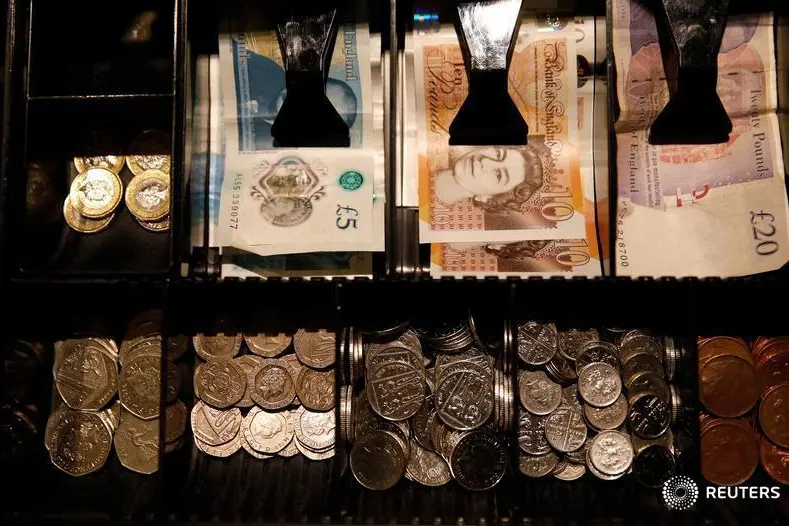PHOTO
LONDON- Sterling fell to a two-week low on Thursday after two Bank of England officials unexpectedly voted to cut interest rates this month and others said they would consider a cut if global and Brexit headwinds did not lift.
The BoE said that its nine-member Monetary Policy Committee voted 7-2 to keep its key rate at 0.75%, in sharp contrast to forecasts in a Reuters poll for a unanimous decision.
So far the central bank has resisted following the U.S. Federal Reserve and the European Central Bank in cutting rates in response to Brexit challenges and a global slowdown caused by a protracted U.S.-China trade war.
The news took markets by surprise, pushing sterling down against its major rivals.
The British currency fell to a lowest point in nearly two weeks at $1.2805 and was last down 0.25% on the day. It was almost 0.4% weaker against the euro at 86.42 pence.
London's benchmark FTSE stock index was last up 0.25%, in line with a weaker pound and as other European markets gained on signs of progress in U.S./China trade talks.
"We have had some sterling underperformance but the moves so far are relatively contained," said Jordan Rochester, a FX strategist at Nomura in London.
"There have been a couple of times where dissenting BoE members get the markets excited but actually the politics or the data changes the narrative."
Rochester said the big focus for currency traders was next month's snap parliamentary election, with uncertainty on that front likely to weigh on the pound.
Increasingly economists believe the BoE will cut interest rates at some point next year given a slowing economy and Brexit uncertainty.
Expectations of a quarter percentage-point rate cut have risen to 40% by March 2020 compared with 25% earlier, according to Refinitiv and CME data.
"The message from the BoE is pointing to the downside for sterling," said Neil Jones, head of hedge fund currency sales at Mizuho bank in London.
"Surprising votes for rate cuts voice concern over domestic and global risks. Given how the UK is such an international economy, this is understandable."
Ahead of the BoE decision, Deutsche Bank economists say they no longer forecast a hike next year and instead see an increasing risk of a rate cut when the BoE delivers its January inflation report at what will be Governor Mark Carney's final MPC meeting.
(Reporting by Dhara Ranasinghe; Editing by Hugh Lawson) ((Dhara.Ranasinghe@thomsonreuters.com; +442075422684;))





















